
The Deficiency of These Vitamins Contributes to Panic Attacks
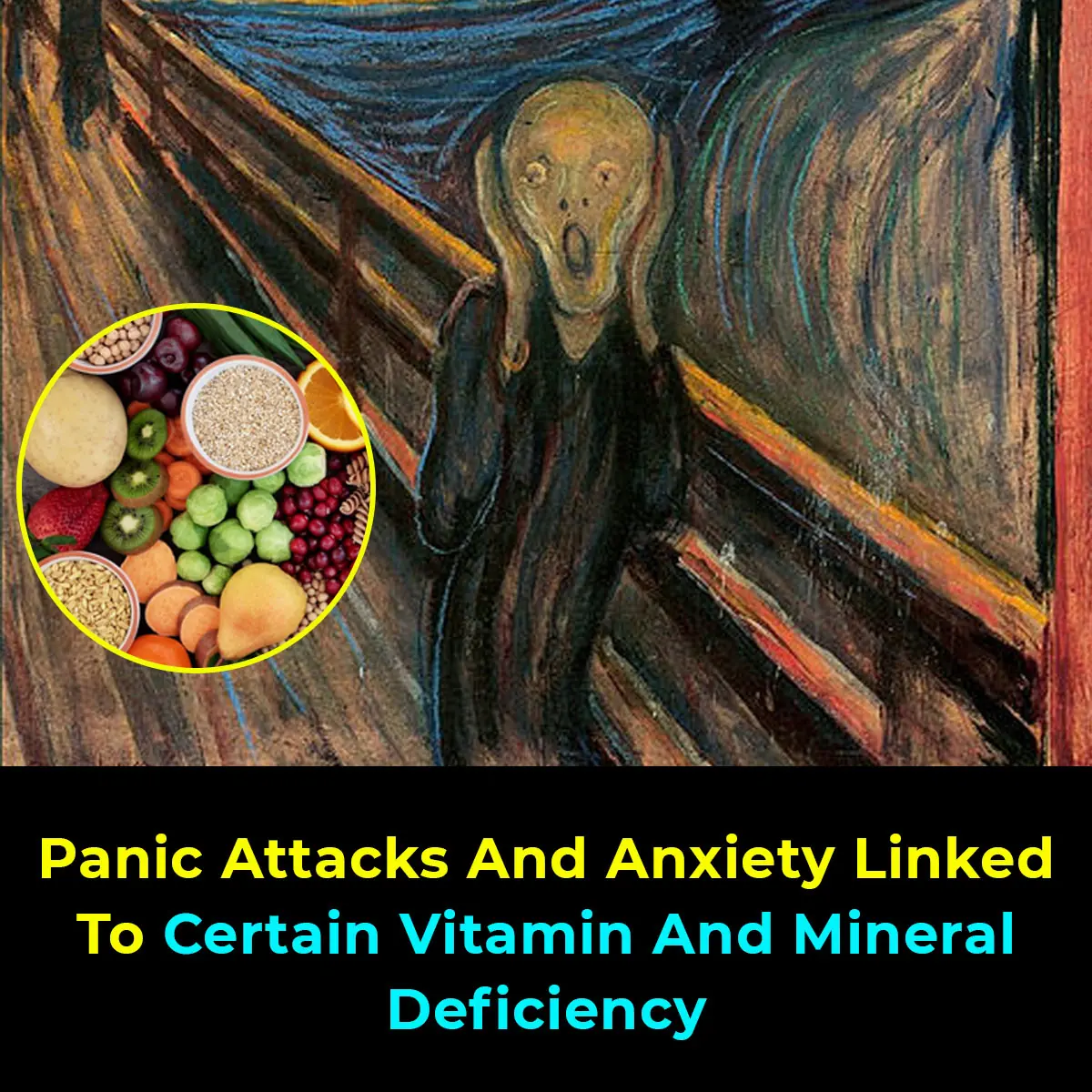
The Role of Nutrient Deficiencies in Anxiety and Panic Disorders: How Diet Can Help
Occasional anxiety is a normal human experience, but when it becomes persistent or evolves into panic attacks, it can have a profound impact on daily functioning. These feelings of unease or fear can interfere with work, social interactions, and overall quality of life. In recent years, emerging research has pointed to the potential role that deficiencies in certain vitamins and minerals play in the development of anxiety and panic disorders. Understanding how nutrient imbalances contribute to mental health issues can empower individuals to make more informed decisions about their diet and lifestyle. This article explores how deficiencies in specific vitamins and minerals can lead to anxiety, how these nutrients support mental health, and the dietary strategies that can naturally help alleviate anxiety symptoms.
The Link Between Nutrient Deficiencies and Anxiety
Research suggests that anxiety and panic disorders are not only linked to psychological and environmental factors but also to nutritional imbalances. A notable study conducted by Okayama University in Japan found that individuals who suffered from panic and hyperventilation attacks had significantly lower levels of key nutrients such as vitamin B6 and iron compared to healthy individuals. These nutrients play essential roles in the production of serotonin, a neurotransmitter that regulates mood and helps keep anxiety in check.
Vitamin B6 acts as a coenzyme in the synthesis of serotonin, while iron is a cofactor in this biochemical pathway. If either of these nutrients is deficient, serotonin production can be hindered, potentially contributing to anxiety and mood disorders. Serotonin is often referred to as the "feel-good" neurotransmitter because it helps promote feelings of well-being and happiness. Low serotonin levels are frequently associated with depression, anxiety, and other mood disorders.
The Importance of Vitamin B6 and Iron for Mental Health
Vitamin B6: A Key Player in Mood Regulation
Vitamin B6, also known as pyridoxine, is vital for maintaining optimal brain function and mental well-being. It aids in the synthesis of several neurotransmitters, including serotonin, dopamine, and gamma-aminobutyric acid (GABA), which are all essential for regulating mood, reducing anxiety, and preventing panic attacks.
Vitamin B6 also plays a role in the production of hemoglobin, which carries oxygen throughout the body. Adequate oxygen supply to the brain helps maintain cognitive function and emotional stability. A deficiency in vitamin B6 can lead to symptoms such as irritability, fatigue, and low mood, all of which can exacerbate feelings of anxiety.
Good dietary sources of vitamin B6 include fish, beef liver, potatoes, starchy vegetables, non-citrus fruits, and fortified cereals. For individuals looking to boost their intake, incorporating these foods into their daily diet can help ensure adequate vitamin B6 levels.
Iron: Essential for Brain Health and Serotonin Production
Iron is another crucial nutrient that impacts mental health. Iron is a key component of hemoglobin, which is responsible for transporting oxygen in the blood. Without enough iron, the brain may not receive sufficient oxygen, leading to symptoms of fatigue, difficulty concentrating, and irritability, which are common in individuals with anxiety disorders.
Moreover, iron plays an essential role in the production of serotonin. Low iron levels can impair serotonin synthesis, leading to imbalances in mood regulation. Iron deficiency is particularly common among women of childbearing age, pregnant women, and individuals who follow vegetarian or vegan diets, as they may not consume enough iron-rich foods.
Iron-rich foods include red meat, poultry, fish, eggs, nuts, dried fruits, legumes, whole grains, tofu, and dark leafy greens. For those who struggle to get enough iron from their diet, iron supplements may be recommended, but it's important to consult a healthcare provider before starting supplementation.
Additional Nutrients to Support Mental Health
While vitamin B6 and iron are essential for mental well-being, other nutrients also play significant roles in reducing anxiety and improving brain function. These include vitamin B12, folic acid (vitamin B9), and magnesium.
Vitamin B12 and Folic Acid: Vital for Brain Function
Vitamin B12 is essential for the proper functioning of the brain and nervous system. It is involved in the production of neurotransmitters, and a deficiency in B12 can lead to cognitive impairment, fatigue, and depression. Folic acid, or vitamin B9, also contributes to the synthesis of neurotransmitters and supports overall mental health. Both of these B vitamins are particularly important for individuals with anxiety disorders, as they help regulate mood and prevent cognitive decline.
Foods rich in vitamin B12 include meat, poultry, fish, eggs, and dairy products. For those who follow a plant-based diet, fortified cereals and plant-based milk are good sources of vitamin B12. Folic acid is found in leafy greens, legumes, citrus fruits, and whole grains.
Magnesium: A Mineral for Stress Management
Magnesium is an essential mineral that supports over 300 bodily functions, including muscle and nerve function, energy production, and stress management. Magnesium helps regulate the production of neurotransmitters and supports a calm, relaxed nervous system. A deficiency in magnesium can contribute to symptoms of anxiety, muscle tension, and sleep disturbances.
Several studies have found that magnesium supplementation may help reduce anxiety symptoms. Foods high in magnesium include leafy greens, nuts, seeds, legumes, whole grains, and fatty fish. Incorporating magnesium-rich foods into your diet can help promote relaxation and reduce stress, making it easier to manage anxiety.
Dietary Strategies to Boost Serotonin and Manage Anxiety
Now that we’ve explored the key nutrients involved in serotonin production and mental health, it’s important to understand how to incorporate these nutrients into your diet. A balanced, nutrient-rich diet can help boost serotonin levels and reduce anxiety, making it an essential part of managing anxiety naturally.
1. Eat a Variety of Nutrient-Dense Foods
The foundation of a diet that supports mental health is variety. Include a wide range of fruits, vegetables, lean proteins, and whole grains to ensure you’re getting adequate amounts of vitamins, minerals, and antioxidants. These foods will help support overall brain function and prevent nutrient deficiencies that can lead to anxiety and other mood disorders.
2. Focus on Protein-Rich Foods
Protein is essential for neurotransmitter synthesis. Make sure to include protein-rich foods like fish, poultry, lean meats, beans, nuts, seeds, and tofu in your meals. These foods provide the amino acids needed to produce serotonin, dopamine, and other mood-regulating neurotransmitters.
3. Include Omega-3 Fatty Acids
Omega-3 fatty acids, found in fatty fish, flaxseeds, chia seeds, and walnuts, are known for their brain-boosting properties. Studies suggest that omega-3s may help reduce anxiety and depression by supporting brain function and reducing inflammation.
4. Reduce Processed Foods and Sugar
Processed foods, refined sugars, and high-fat diets can negatively impact brain health and increase the risk of anxiety. Aim to limit your intake of processed foods and focus on whole, unprocessed foods that nourish your body and brain.
Consulting a Healthcare Professional
If you’re experiencing severe anxiety or panic attacks, it’s crucial to consult a healthcare professional. While dietary adjustments and natural remedies can be helpful in managing symptoms, they should complement, not replace, professional medical treatment. A healthcare provider can help determine whether there are underlying health conditions contributing to your anxiety and develop a personalized treatment plan that includes therapy, medication, and lifestyle changes.
Conclusion
Maintaining an adequate intake of key nutrients, such as vitamin B6, iron, magnesium, and vitamin B12, can play a crucial role in managing anxiety and panic disorders. These nutrients support serotonin production, brain function, and overall mental health. By incorporating a nutrient-dense, balanced diet into your routine, you can help manage anxiety naturally and improve your overall well-being.
Remember, while dietary changes can have a positive impact, it’s essential to seek professional guidance for ongoing anxiety or panic attacks. By combining nutritional strategies with the advice of a healthcare provider, you can take control of your mental health and improve your quality of life.
News in the same category


Brittle Nails, Dry Hair? You’re Missing Out on These Vital Vitamins, Says Science!

Experts Reveal 11 Hidden Health Warnings You Can Spot Just by Looking at Your Nails
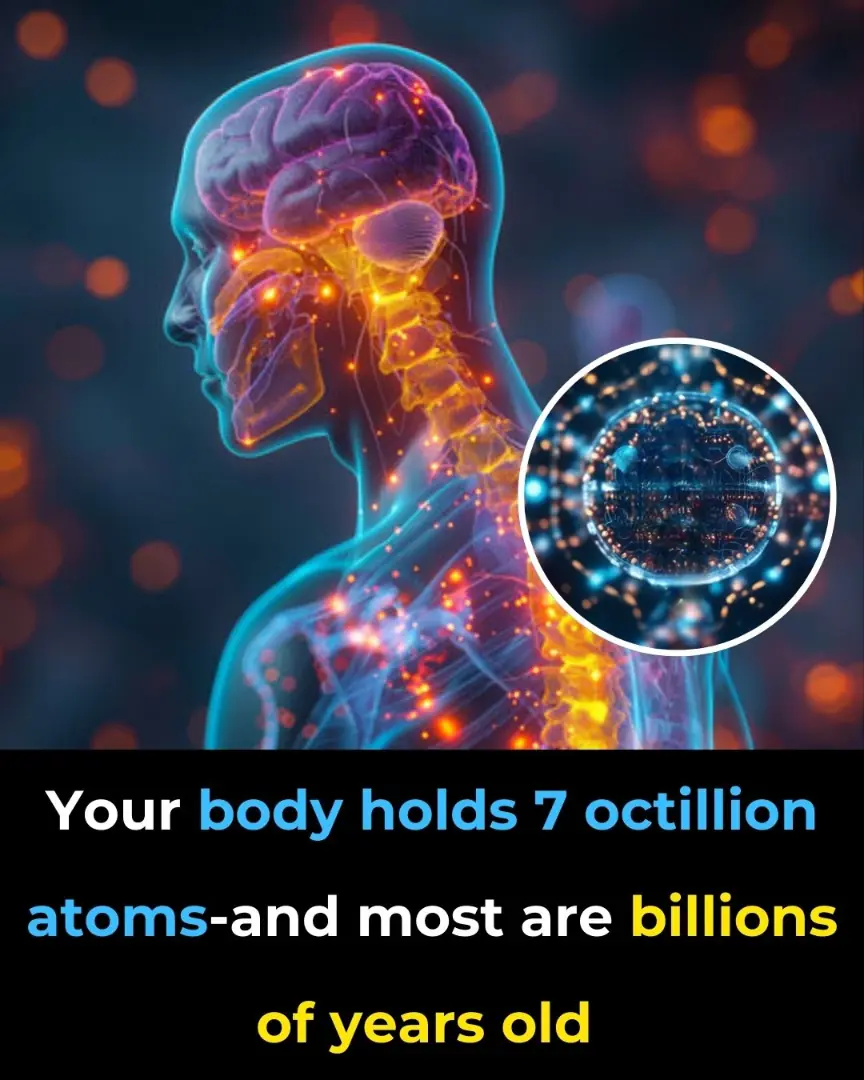
Your Body Holds 7 Octillion Atoms—And Most Are Billions of Years Old

Why You Should Stop Waking Up to Urinate

Scientists Say That The Brain Senses Emotions In Others Without You Even Knowing It
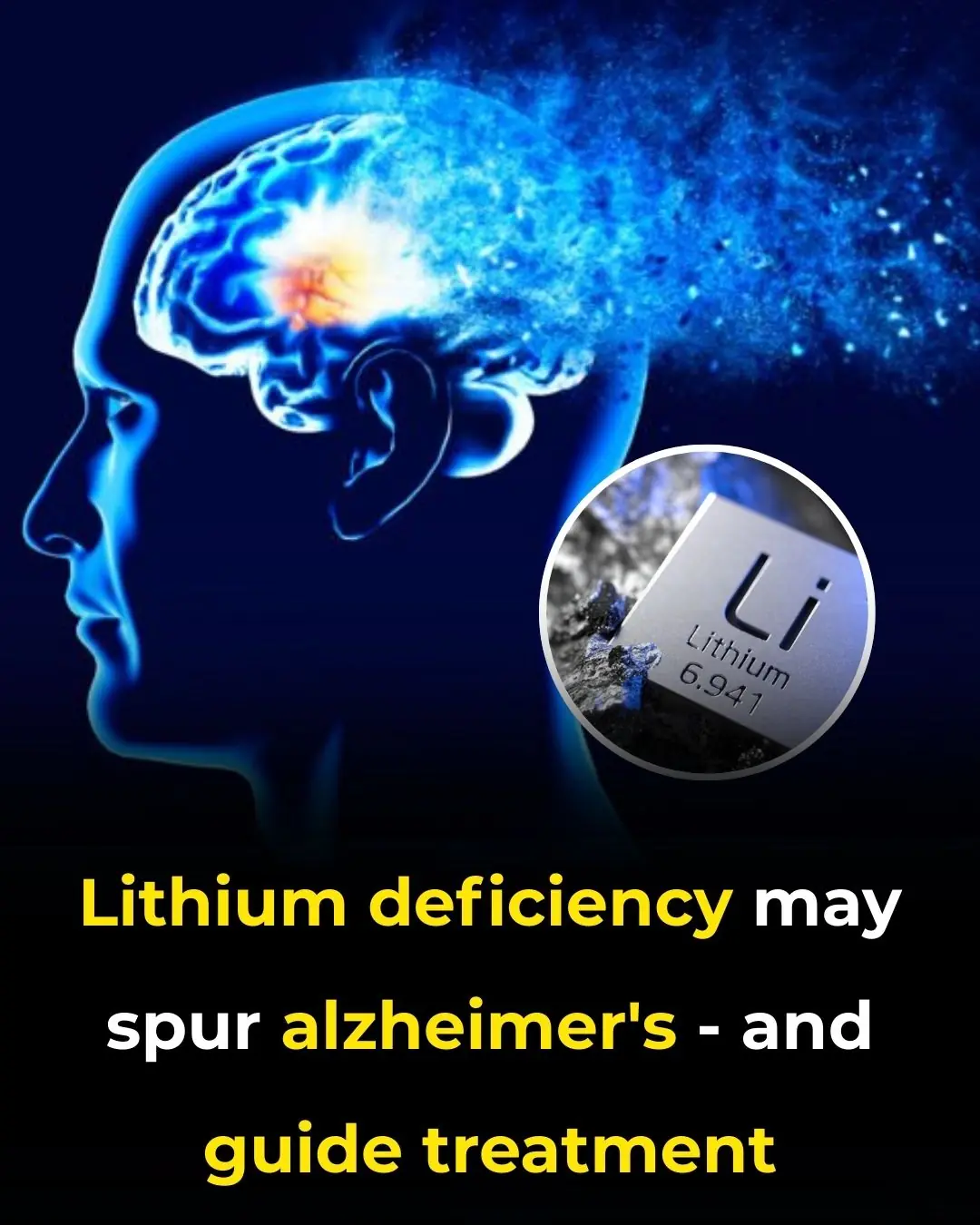
Lithium Deficiency May Spur Alzheimer’s — and Guide Treatment

Hep B Transmitted by Shared Glucometers in Care Facility

8 Foods Scientists Say You Must Avoid for a Flat Stomach!

The First Warning Signs of Lung Disease That No One Talks About

Sip these 5 powerful drinks for stronger kidneys
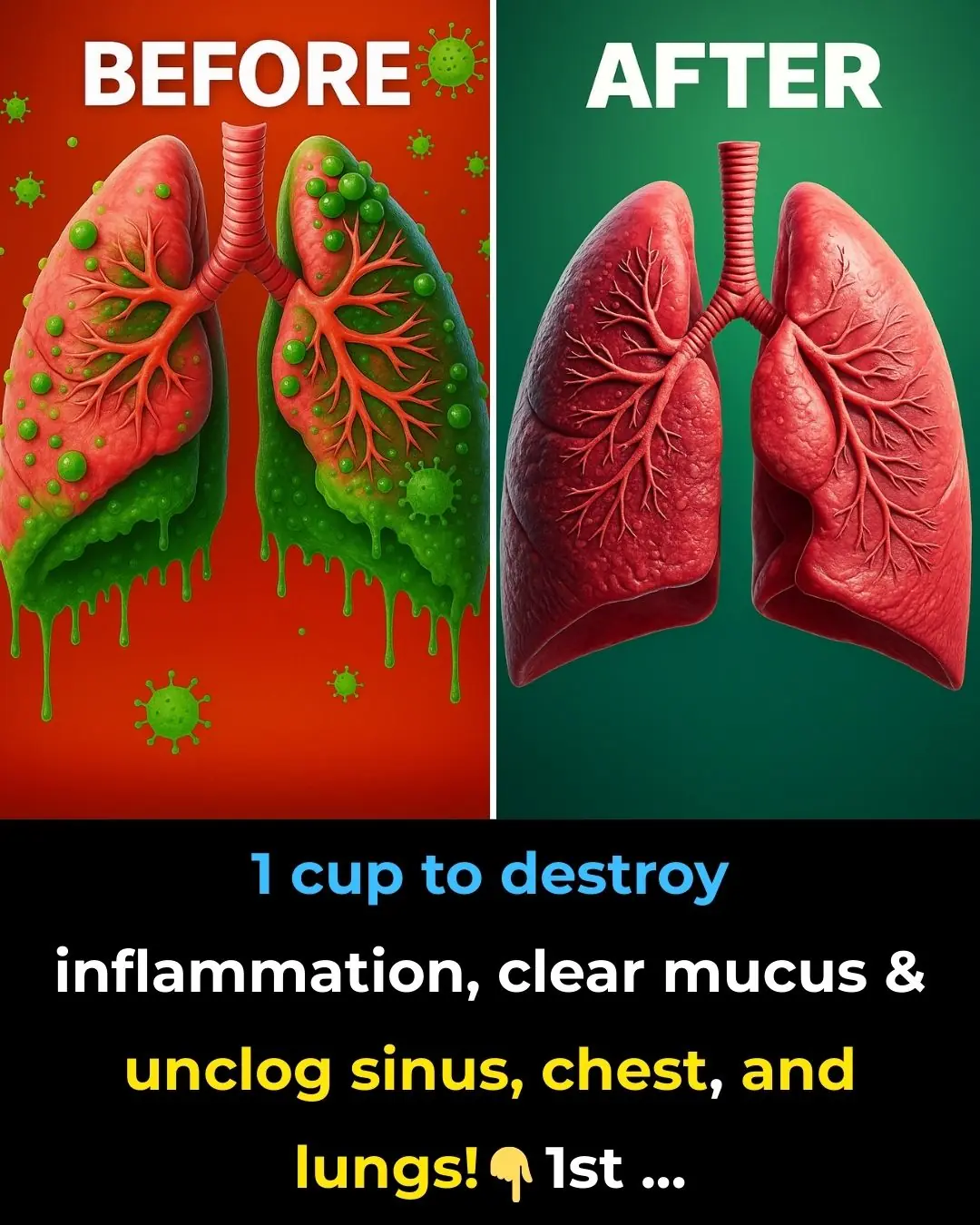
1 cup to destroy inflammation, clear mucus & unclog sinus, chest, and lungs!

Red Spots on Skin: Causes, Treatments, and More (Extensive Guide)
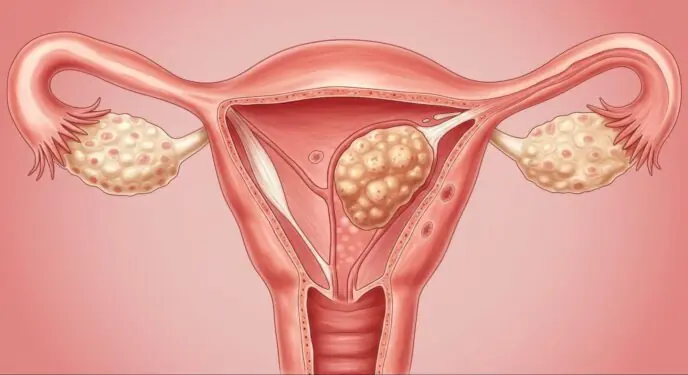
7 Warning Signs You May Have Uterine Fibroids

Parasite Cleanses: Do They Really Improve Your Gut Health — and Are They Safe?

8 Teas to Drink for a Healthier Body and Mind
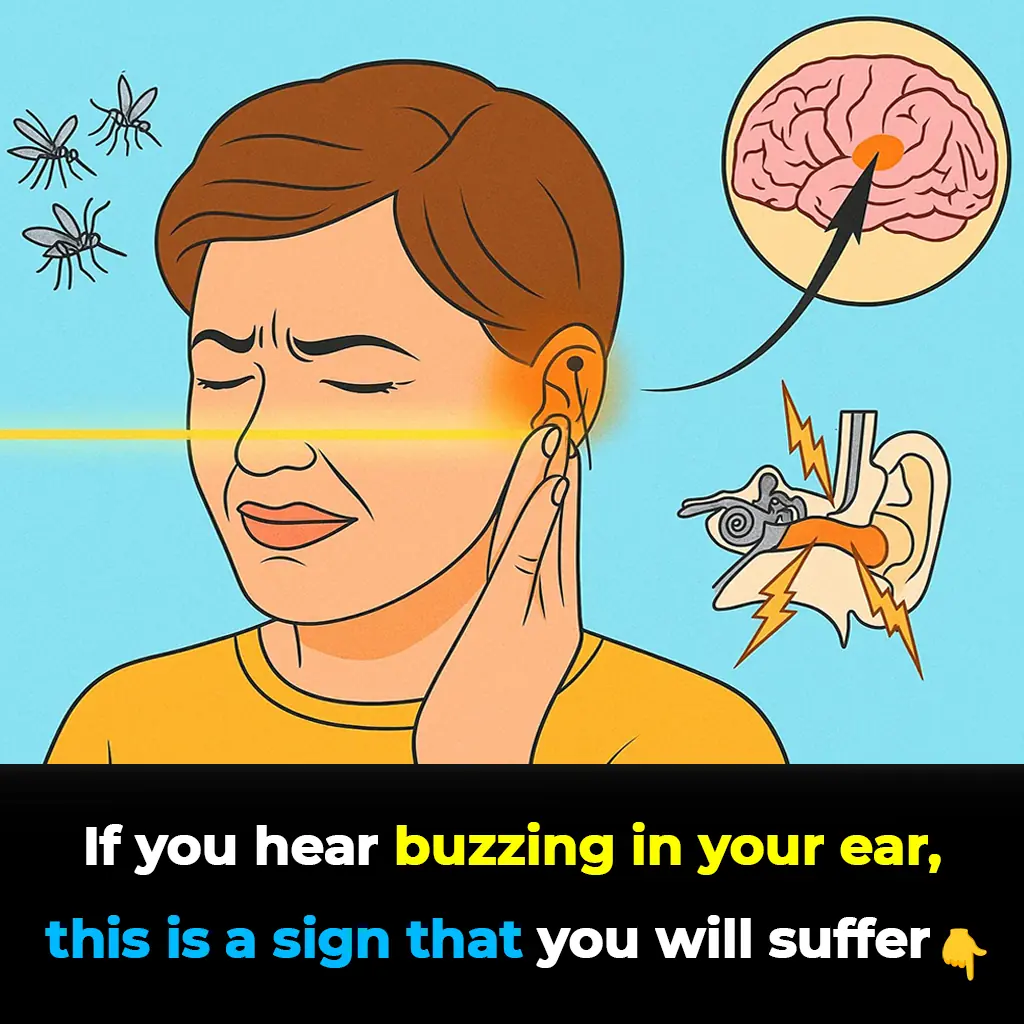
The Hidden Truth About Tinnitus: Why That Ringing in Your Ears Shouldn’t Be Ignored
Over time, repeated noise trauma damages tiny hair cells inside the cochlea, which cannot regenerate, resulting in permanent hearing changes and tinnitus.

DIY Turmeric & Ginger Shots to Fight Inflammation, Boost Immunity & Soothe Your Gut

Coconut water: Is It Good for You, Nutrition, Benefits, Side Effects (Science Based)

Clean Arteries: 10 Foods to Eat Daily
News Post

Dogs Can Tell If A Person Is Good Or Bad

Panic on P:0rnh:ub as adult site reports it's losing one million users every single day

Surprising Benefits of Sitting Facing Forward on the Toilet

New Jersey man d:i:es while traveling to meet AI chatbot he fell for

Brittle Nails, Dry Hair? You’re Missing Out on These Vital Vitamins, Says Science!

Experts Reveal 11 Hidden Health Warnings You Can Spot Just by Looking at Your Nails

Your Body Holds 7 Octillion Atoms—And Most Are Billions of Years Old

What’s the Purpose of Dual-Flush Toilet Buttons?

Why You Should Stop Waking Up to Urinate

Scientists Say That The Brain Senses Emotions In Others Without You Even Knowing It

Lithium Deficiency May Spur Alzheimer’s — and Guide Treatment

Hep B Transmitted by Shared Glucometers in Care Facility

Put Salted Lemon in the Room—The Surprising Benefits

On Humid Days, Walls Are Prone to Mold and Peeling—Do This Right Away to Improve the Situation

Every Home Refrigerator Always Has Two Problems—Throw Them Away as Soon as Possible to Prevent Future Bad Smells

Tips to Eliminate Unpleasant Odors in the Refrigerator—After One Night, the Unbearable Smell Will Completely Disappear

Tips for Cleaning an Air Fryer Without Scrubbing, Yet It Still Looks As Good As New

Pour a Little Fabric Softener into the Dishwashing Bowl, and Many Problems in the House Will Be Solved Instantly

Save Millions on Electricity Bills Every Year by Knowing How to Clean the Bottom of the Rice Cooker
